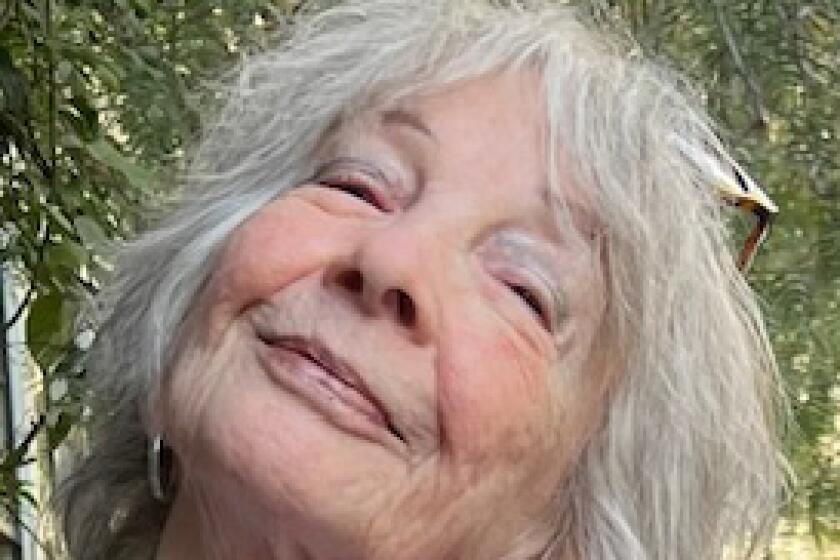FICTION
ZOMBIE by Joyce Carol Oates (Dutton: $19.95; 181 pp.) To hear Quentin P. tell it--and his is the only voice in Joyce Carol Oates’ latest novel--he is a serial killer only by accident. His dream is to create a “zombie,” a gay sex slave who will love him unconditionally. Like a Jeffrey Dahmer or a John Wayne Gacy, he roams the streets of Michigan cities, a bland-looking man in a nondescript Ford van, and kidnaps youths, takes them home and gives them frontal lobotomies with an ice pick. The operations always fail, however; the “specimens” die. So Quentin is always hunting for more.
Oates has long specialized in working this territory--the line where our human sympathy for the deviant shades into revulsion at the undeniably strange. “Zombie” is the direct descendant of her 1970 story “How I Contemplated the World From the Detroit House of Correction and Began My Life Over Again,” both in theme--the young person totally alienated from an upper-class Midwestern background, beyond the reach of parental love, threats or psychological “understanding”--and in Oates’ use of a special language to convey that alienation. Quentin’s prose is stunted, barren and cluttered with irrelevant detail.
The serial killer has become a cliche in American fiction, but Oates restores its impact by grasping a central paradox: To be as evil as Quentin is to be unspeakably lonely. The evil repels us--we want to deny that he is human--but the loneliness insists that he and we are, indeed, somehow related.
Quentin himself is the zombie. He is drawn to his victims by the “shining life” he will never have, and he robs them of it in the hope of creating, at last, somebody to keep him company in the land of the living dead.
More to Read
Sign up for our Book Club newsletter
Get the latest news, events and more from the Los Angeles Times Book Club, and help us get L.A. reading and talking.
You may occasionally receive promotional content from the Los Angeles Times.






